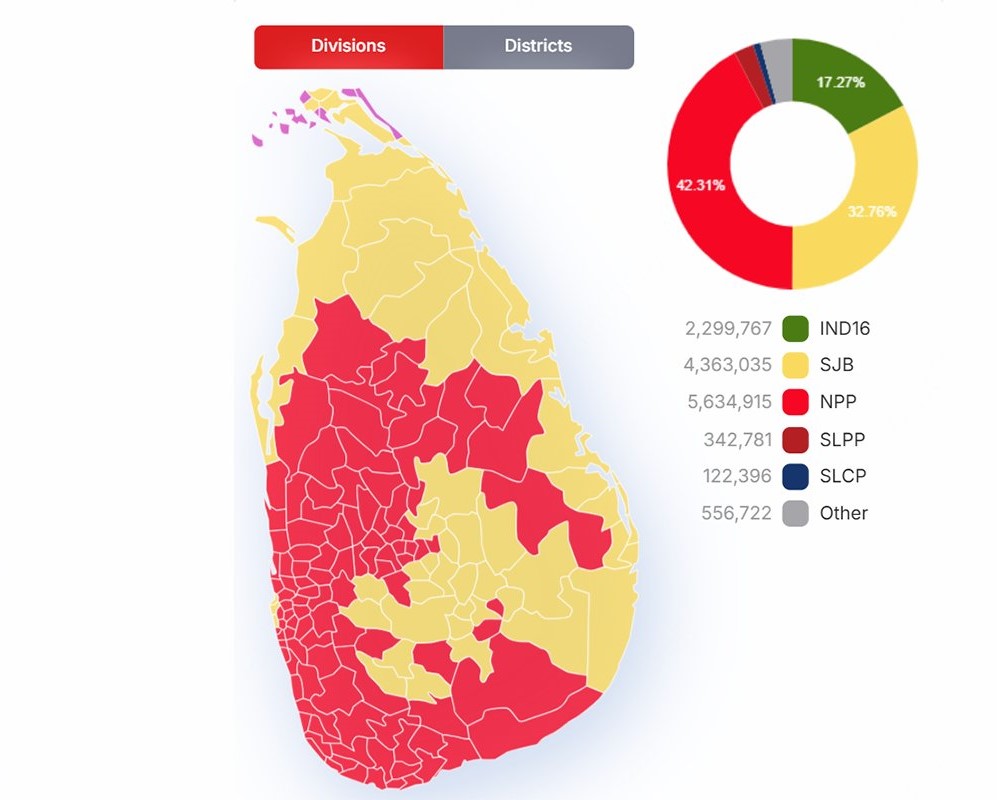The recent election has been unprecedented, marking the first time in Sri Lankan history that none of the candidates secured 50% of the total votes in the first count. This led to the election proceeding to the second and third rounds of counting. Even after multiple rounds, no candidate achieved an outright majority, leaving the country in a politically uncertain situation.
Anura Disanayake emerged as the frontrunner, surpassing Sajith Premadasa and Ranil Wickremasinghe , both of whom were favored by the capitalist establishment. While AKD’s victory is a significant blow to the entrenched elite, his failure to secure a decisive win presents several challenges. Sri Lanka now has a president who holds only minority support. While this poses no legal issues constitutionally, it may create a perception problem, as opponents are likely to exploit AKD’s “Minority President” status to question his legitimacy—especially when he implements significant decisions.
The label of “Minority President” will likely follow AKD throughout his term, serving as a constant reminder that he lacks a broad-based mandate, which could weaken his position over time.
This dynamic is likely to embolden his opponents as they gear up for the general election. The @officialunp and @sjbsrilanka camps may seriously consider merging forces, given that their combined vote shares (32.76% + 17.27% = 50.03%) could have secured an outright victory. Notably, regional politicians from both the SJB and UNP were largely passive during the presidential campaign, but they are likely to become far more active in the general election, where their political futures are directly at stake.
Given these factors, the National People’s Power might face challenges in forming a government after the general election. Even if they manage to become the leading group, a hung parliament is a possible outcome, which would severely limit their ability to govern effectively. This could lead to a government that struggles to implement significant reforms or policy changes.
It’s also important to note where AKD found his electoral base—the working-class regions. The NPP has yet to break into the urban areas dominated by the lumpenproletariat, many of whom voted for RW or SP. These voters supported the NPP with high hopes for holding those responsible for the country’s economic collapse accountable and for instituting meaningful reforms. Their expectations include resolving the cost-of-living crisis and addressing job security and unemployment. However, if the NPP fails to secure enough power to deliver these changes, widespread disillusionment among its supporters is likely.
Moreover, given the NPP’s likely limitations, it could find it difficult to make even small adjustments to the IMF-backed economic program, which is the root of many of the issues plaguing the country. This situation could force AKD to operate within the constraints set by
RW’s policies, despite the NPP’s stated opposition to many such measures.
In this scenario, the NPP could be steered in a direction similar to that of its predecessors, hemmed in by both internal political pressures and external economic constraints. The key question remains: how will the public, who placed high hopes in the NPP for lasting change, react if those expectations are unmet? And how will the NPP respond if faced with public opposition against its government?
(from X @Welikumbura )
